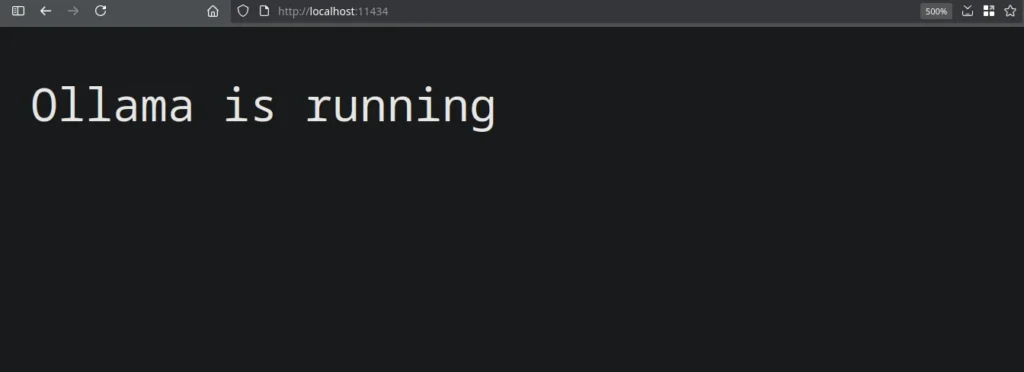Here’s a well-structured WordPress blog post version of your article:
How to Run DeepSeek R1 Locally with Ollama
Artificial Intelligence is transforming the way we interact with technology, and large language models (LLMs) are at the forefront of this revolution. While cloud-based AI services are powerful, running models locally offers significant advantages, including privacy, speed, and cost efficiency.

In this guide, we will explore how to run DeepSeek R1, an advanced open-source LLM, locally using Ollama. This setup allows developers and AI enthusiasts to harness the power of DeepSeek R1 without relying on cloud APIs.
📌 Why Run LLMs Locally?
Running LLMs on your own machine provides several key benefits:
✔ Data Privacy – Your queries and responses stay on your local system, reducing security risks.
✔ Lower Latency – No network delays; responses are generated instantly.
✔ Full Control – Modify, fine-tune, and integrate models into your workflow without restrictions.
✔ Cost Efficiency – No ongoing cloud API fees for AI inference.
🚀 What is Ollama?
Ollama is an easy-to-use tool that enables running large AI models on personal computers. It provides:
🔹 Pre-packaged Model Support – Works seamlessly with models like DeepSeek R1.
🔹 Cross-Platform Compatibility – Supports Windows, macOS, and Linux.
🔹 Optimized Performance – Ensures efficient resource use for AI processing.
🔧 Installing Ollama
Getting started with Ollama is simple. Follow these steps to install it:
For macOS
Open your terminal and run:
brew install ollama
For Windows & Linux
Visit the official Ollama website and follow the installation instructions for your OS.
🎯 Downloading and Running DeepSeek R1
Once Ollama is installed, download the DeepSeek R1 model by running:
ollama pull deepseek-r1
For a lighter version optimized for efficiency, use:
ollama pull deepseek-r1:1.5b
Start the Ollama service in a separate terminal window:
ollama serve
Now, you can run the model interactively:
ollama run deepseek-r1
To test a specific prompt, use:
ollama run deepseek-r1 "Explain the fundamentals of neural networks."
💡 Practical Use Cases
DeepSeek R1 is highly versatile and can be used for:
🗨 Conversational AI
- Develop AI chatbots and virtual assistants.
- Generate high-quality text responses.
Example:
“Summarize the latest AI research trends in 200 words.”
🖥 Code Assistance
- Write, debug, and optimize code snippets.
Example:
“Write a Python function to validate an email address.”
🔢 Problem-Solving
- Solve mathematical equations and logical problems.
Example:
“Solve for x: 3x^2 + 5x – 2 = 0.”
⚡ Optimizing Performance with Distilled Models
If you need a lightweight model that runs efficiently on lower-end machines, try DeepSeek-R1-Distill versions:
🔹 1.5B, 7B, or 8B versions
🔹 Reduced computation requirements
🔹 Faster response times
To run a distilled version, use:
ollama run deepseek-r1:7b
🛠 Automating Tasks with Command-Line Scripts
If you frequently interact with DeepSeek R1, automate the process with a script:
Step 1: Create a Bash Script
#!/usr/bin/env bash
PROMPT="$*"
ollama run deepseek-r1:7b "$PROMPT"
Step 2: Run It
./ask-deepseek.sh "Explain the difference between supervised and unsupervised learning."
🔗 Integration with Developer Tools
For developers, integrating DeepSeek R1 into IDEs like VS Code allows for real-time AI-powered code suggestions. You can also configure AI-driven automation in applications using APIs.
🔍 FAQs
Which version of DeepSeek R1 should I use?
- If you have a high-performance machine, use the full version.
- If you have limited resources, try the distilled versions (1.5B, 7B, 8B) for optimized performance.
Can DeepSeek R1 run in Docker?
Yes, you can deploy it in Docker containers, cloud VMs, or on-premises servers.
Can I fine-tune DeepSeek R1?
Yes, fine-tuning is possible, but licensing terms may vary for different variants like Qwen and Llama-based models.
Is commercial use allowed?
- DeepSeek R1 is MIT-licensed (free for all uses).
- Qwen-based models use Apache 2.0.
- Llama-based models may have restrictions—check their licenses before commercial deployment.
✅ Conclusion
Running DeepSeek R1 locally with Ollama provides privacy, performance, and cost savings over cloud-based AI services. Whether you’re a developer, researcher, or AI enthusiast, this setup allows you to harness the power of open-source AI models on your own machine.
By integrating distilled models, automation scripts, and IDE tools, you can maximize efficiency while maintaining full control over your AI workflow.
🚀 Try running DeepSeek R1 today and share your experiences in the comments below!
